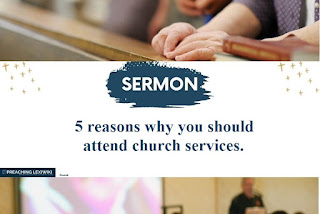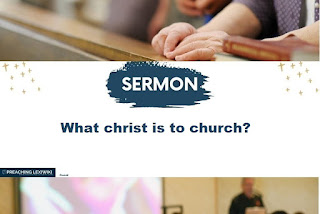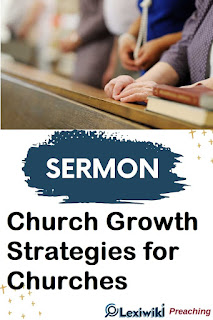Preaching on Obstacles in the Church
The Word of God, for within its sacred pages, we find guidance for the challenges that confront us, not only in the world, but within the very walls of our church. Today, we address the obstacles that hinder our fellowship, our growth, and our witness.
-- Ads --
1. God Calls Us to Remove Obstacles from the Path (Isaiah 57:14)
“And it will be said, ‘Make straight, make straight, prepare the way; remove the stumbling blocks out of the path of my people.’” God calls us to be road builders, clearing the path so that others may come to Him. We must be vigilant, removing the barriers that hinder our relationship with God and the relationships of those around us. Every Christian has the mission of preparing the way for others to draw near to the Lord.
2. Unfaithful Leaders Are Obstacles to God's People (Malachi 2:7)
“For the lips of a priest should preserve knowledge, and men should seek the law from his mouth, for he is the messenger of the Lord of hosts.” Spiritual leaders have a sacred responsibility to teach the truth, to guide the flock with integrity and wisdom. When leaders stray from the path of righteousness, they become a stumbling block to those they are called to serve.
3. When Leaders Stray, They Become a Stumbling Block (Malachi 2:8)
“But you have turned aside from the way, you have caused many to stumble at the law, you have corrupted the covenant of Levi, says the Lord of hosts.” An unfaithful leader not only loses his way but also leads others into error. We must pray and watch that our leaders remain firm in the faith, grounded in the Word, and led by the Spirit.
4. Satan Tries to Put Obstacles in the Way of God’s Work (Matthew 16:23)
“But he turned and said to Peter, ‘Get behind me, Satan! You are a stumbling block to me, for you do not set your mind on the things of God, but on the things of men.’” Even Peter, a beloved disciple, became a stumbling block when he spoke from his own understanding rather than God’s. We must discern and reject any influence that takes us away from God’s purpose, recognizing that Satan seeks to derail God’s work.
5. Hypocrites Within the Church Are a Great Obstacle (Matthew 23:13)
“But woe to you, scribes and Pharisees, hypocrites! For you shut the kingdom of heaven against men; and neither go in yourselves, nor suffer those who are entering to go in.” Legalism and hypocrisy drive people away from God. We must live with sincerity and love, pointing to Christ and not to empty human rules. Our actions must reflect our faith.
6. Empty Religiosity Prevents Access to the Truth (Luke 11:52)
“Woe to you, lawyers! For you have taken away the key of knowledge! You yourselves have not entered, and those who were entering you have hindered.” When we place traditions above God's truth, we become obstacles to others. We must teach the Word with clarity and love, without distorting its message. We must unlock the scriptures, not lock them away.
7. Everyone Can Become a Stumbling Block if They Are Not Vigilant (Romans 14:13)
“Let us not judge one another any longer, but rather decide not to put a stumbling block or a cause for stumbling in the way of our brother.” Our actions, even our well-intentioned ones, can drive people away from God. We need to act with grace and mercy to build others up, remembering that we are all works in progress.
8. Our Freedom Cannot Be a Stumbling Block to Those Weak in Faith (1 Corinthians 8:9)
“But take care that your freedom does not become a stumbling block to the weak.” Not everything that is lawful is profitable; we must consider how our actions affect others. Love leads us to give up certain things so as not to harm the faith of those who are weak. We must use our liberty to serve, not to wound.
9. True Love Prevents Us from Being a Stumbling Block (1 John 2:10)
“He who loves his brother abides in the light, and there is no stumbling block in him.” When we live in love, we avoid being a stumbling block to others. Love leads us to act with patience, understanding, and edification. Love builds bridges, not barriers.
10. We Need to Remove Obstacles from Our Own Path
In addition to avoiding being a stumbling block to others, we must also remove those things that prevent us from growing spiritually. Sin, unforgiveness, and pride can be barriers that we need to break down. We must examine our hearts, confess our sins, and allow God to purify us.
- Preaching on Guidance for Difficulties on Life's Journey
- Preaching on The Water of Life - A River of Eternal Hope
- Preaching on Insults Suffered by Christ
Conclusion
Let us strive to build a church free of obstacles, a community where love and truth prevail. Let us be vigilant in removing the stumbling blocks that hinder our fellowship and our witness, so that all may come to know the saving grace of our Lord Jesus Christ. Amen.














